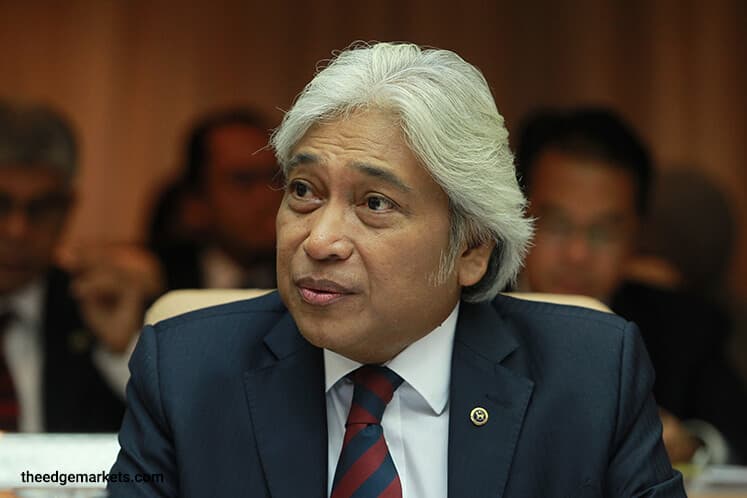
KUALA LUMPUR (Aug 15): The global economy continues to remain "relatively weak", even after nearly a decade after the global financial crisis that occurred in 2007 to 2008, said Bank Negara Malaysia (BNM) Governor Datuk Muhammad Ibrahim.
In the next two years, Muhammad said the world economic growth is projected to grow at an average of 3.5%.
He also voiced his concern about protectionism, which is starting to gain traction, especially in the area of international trade.
“Amid a mood of economic uncertainty, protectionism, once thought of as an irrelevant concept, has made an unexpected re-entry into the global discourse on international trade,” Muhammad said in a prepared speech delivered at the 28th National Public Sector Accountants Conference 2017 in Penang today.
This challenging global environment is one of three challenges Malaysia needs to "navigate and overcome", according to Muhammad. The other two are technological progress and demographic shifts.
On technological progress, Muhammad said, “as public officials, we need to appreciate how technological progress will influence the way public policies are formulated and communicated.”
On demographic shifts, Muhammad noted 26.3% of Malaysia’s total population now is between the ages of 25 to 40 years old.
“This represents a group of better-educated individuals, used to unfettered access to information. They are likely to have higher expectations on public service. The era of ‘government knows best’ is a past participle,” he added.
Hence, Muhammad said public officials need to have three characteristics to navigate the challenges of the future: integrity, agility and validity of measurement.
Integrity, Muhammad said, is best demonstrated through the transparency and thoroughness of disclosures, particularly via the publication of financial and non-financial information in which the public can truly hold its government and public institutions to account.
“Accountants and auditors must be provided with the platform and stature to pursue facts and voice any concerns in a meaningful and constructive manner. This includes follow-up on investigations or corrective actions, where necessary,” he added.
Agility means a more flexible approach towards policy-making by public officials, he said. “In a fast-moving environment, we must allow ourselves more room to fine-tune our policies, or change course where necessary,” he said.
"This is not ‘policy flip-flopping’. Instead, policymakers should be bold enough to reverse or change policy direction if it is no longer serving the public interest effectively. The expectation is not for the public sector to be infallible, but for it be agile enough to respond calmly and assuredly to unintended outcomes," he explained.
On validity, he said initiatives and policies to transform the public sector would be futile if it is not known how effective they are. "In this respect, we must develop identifiable, measurable and
practical performance indicators," he said.
“Our performance indicators should be defined by three key features: long-term in outlook, integrated with overall strategic objectives and should also focused on impact of social outcomes,” he added, noting that “performance measurement should go beyond budgetary considerations.”
“With integrity, agility and vision, I am confident that we will triumph over the unfamiliar which will most likely characterize our future,” he concluded.